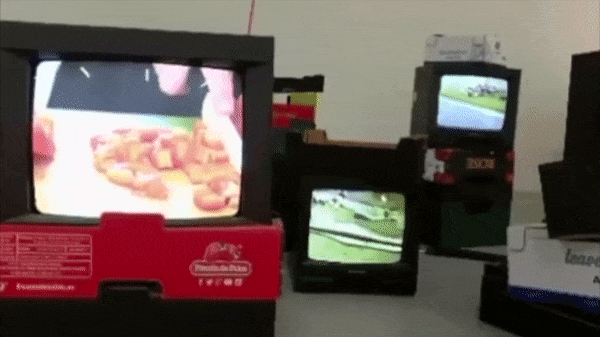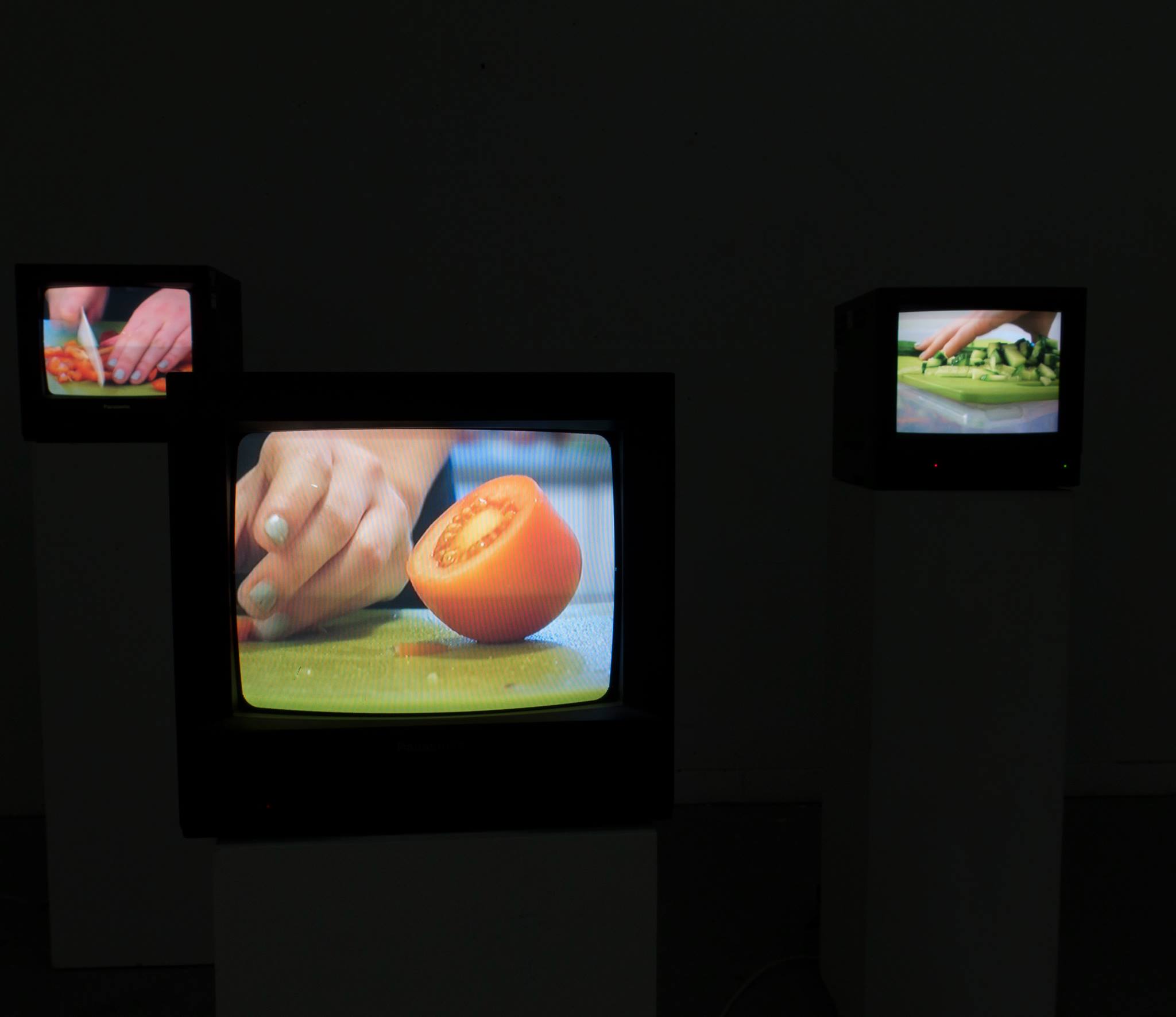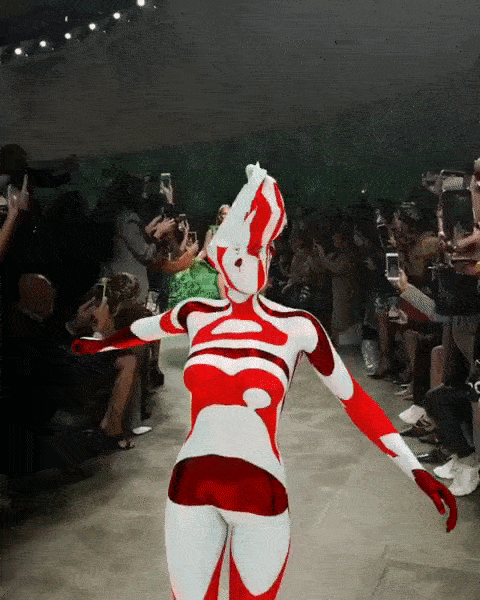Holly Watson
Can you tell me a little bit about what the project is?
The project came about after going to volunteer in a refugee camp in Dunkirk. The piece ‘the Kitchen is closed and the Camp Has Burned down’ is a 4 monitor film installation, from a wider body of work exploring issues surrounding the refugee crisis. During the film, viewers watch the chopping of vegetables and the making of a salad, while lines of text intermittently appear on individual screens. The text eventually tells a short story about a conversation between my friend and a man living in the camp who bandages her up after cutting herself and reveals some of his own scars. The project began as an exploration of societies attitude towards the ongoing refugee crisis, but I wanted to speak to the people who are affected by it first hand.
What made you decide to go to Dunkirk?
A friend and I had been talking about how much we wanted to go somewhere and volunteer, and I found an organisation who ran the kitchen in the Grande-Synthe camp. Everyone there was so unbelievably welcoming when we arrived and everyone was so involved in the kitchen, volunteers and refugees alike. The main objective of the group is “preparing and distributing healthy and culturally familiar food to the refugees, by the refugees”. This has created such a sense of unity in the camp, breaking down barriers between refugees and volunteers, and allowing people to regain a sense of control in their lives. Kesha Niya has since been forced to close their kitchen in Dunkirk, and shortly after this a fire destroyed the whole camp which was home to more than 1500 people. So many people have lost what little they had, and its absolutely devastating. The team are currently in Italy where they have set up a new base and continue to provide food for people. They are a really inspiring group of people.
When you were there what inspired your work?
To be honest I wasn’t thinking about the work while I was there. Being in the camp was more about helping as much as I could. Getting to know some of the people that lived in the camp on a personal level made me realise that I wanted to make the work for them, I wanted to share their stories. They are some of the kindest people I’ve ever met.
Do you have any memorable moments from your time in the camp?
Two moments stand out for me. The first was on our last night, when we had been dancing in the kitchen while prepping for dinner. My phone fell out of my pocket (found a few weeks later under a cupboard) and when I realised it was missing, everyone turned the kitchen upside down, emptied out bins, checked peoples pockets to try and find it. When we couldn’t, the refugees laid out their phones on the table and told me to pick one. I burst into tears because I was just blown away by how much kindness these people who I had only known for a few days were showing me. Friends I’ve known for years would never just give me their phone to replace mine! The second was when we arrived back to the UK. We got a cab to the train station from the ferry, and the driver asked us where we had been. When we told him, his entire attitude changed. He started spouting all this racist, Islamophobic bullshit and I think that’s what made me so driven and realise why I needed to make this work.
Why did you decide to focus on your time in the kitchen and making the salad?
When I looked back on my time in Dunkirk and the conversations I had, many took place while we stood chopping vegetables. It was strange to participate in such a mundane every day activity in somewhere so massively out of the ordinary, and I really wanted to draw attention to the fact that this is a universal experience - making and eating food. No matter where you are or your what your situation is, everyone chops vegetables (although maybe not quite on this scale). It was also such a unique space of acceptance and cooperation where people from all over the world came together, when no one had asked them to.
What do you hope people will see when they look at your work? Do you want it to inspire change or draw attention to the refugee crisis?
Well for me the piece became about a celebration of compassion. Without the kitchen and everyone who helped run it, the camp would have been a very different place, and the kindness shown to us by the refugees was completely unparalleled to anything I have ever experienced in my life. So I guess I really hope that people get a glimpse of that through this piece, and that it might challenge people to question or think about things differently. Our society seems to be becoming more and more intolerant and lacking in humanity, perhaps by talking about the fact that awful things are happening to individual people with names and stories and not just to a faceless mass, people might be able to relate or empathise with those who through luck of the draw are in worse situations than themselves.
Images courtesy of Holly Watson
interview GISELLE HYAM
More to read









